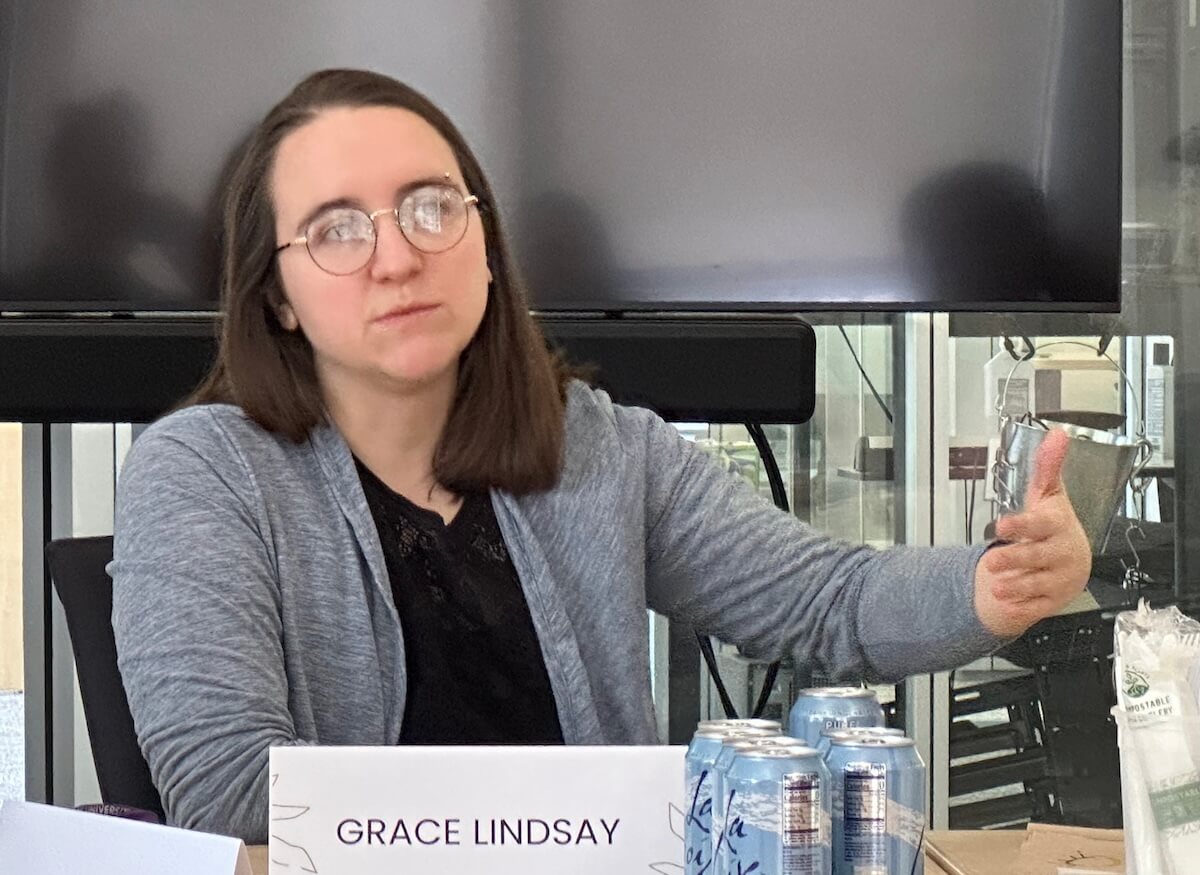
Faculty Spotlight
Grace Lindsay
Assistant Professor of Psychology and Data Science
There are currently two research themes being pursued in my lab. The first centers on trying to understand how attention works in the brain. Attention allows the brain to flexibly make itself better on specific tasks; for example, when looking for your keys, your visual system gets better at spotting shiny objects. We take a computational approach to studying this problem. Specifically, we use models frequently used in computer vision as a stand-in for the brain’s visual system and then ask how we can alter these models to make them more flexible and brain-like. This work stems from my original academic interest: computational neuroscience. (I even wrote a book, Models of the Mind: How physics, engineering, and mathematics have shaped our understanding of the brain, which explains computational neuroscience to a broad audience.) The second theme in my lab represents a more recent and rather different interest: climate change. I felt compelled to work on climate change due to the massive impact it will have on the planet and all of our lives. I have initiated research projects that involve applying computer vision techniques to satellite imagery. Satellite and other geospatial datasets have many potential applications in mitigation and adaptation to climate change. For example, one of our ongoing projects tracks the development of rooftop solar panels in Puerto Rico to understand how the energy transition is playing out on the island. While very different in application, both of these lines of research involve the use of computer vision tools.
Machine Learning for Climate Change is a course for data science undergrads, who generally don’t have a background (or strong interest) in climate change specifically. It is very rewarding to be able to teach them about this issue and how it connects to everything we do and care about, and how the skills they are learning can help. The course is structured around reading research papers and the students conduct self-designed research projects as the main component of their grade. I think the students really appreciate the chance to see cutting edge applications for machine learning and some have even indicated that the course has influenced their career choice, making them more interested in pursuing a career in sustainability.

Grace with members of her Lindsay Lab in May 2023
I am naturally drawn to interdisciplinary settings and so I really enjoy the broad range of researchers and fields of study involved in the cluster including psychology, linguistics, computer science, neuroscience and data science. It’s compelling that we are explicitly linking philosophy with computer science and neuroscience and so on. I think being part of the cluster has encouraged me to be more active in thinking about how my research connects with people in different topic areas.
My PhD advisor, Ken Miller, set a great example of how to be an honest scientist and a good person. I think there can be a pressure in academia to be “flashy’ or exaggerate results and it was good for me to see examples during my formative years of how to make a contribution in a balanced way.
I think I would aim for work with more immediate practical impact, like doing applied data science on problems of societal importance. In my work on climate change, I try to find research problems that are of relevance to external stakeholders. So I could see myself, for example, working for a government agency or non-profit that is tackling climate change issues using technology.

It’s compelling that we are explicitly linking philosophy with computer science and neuroscience